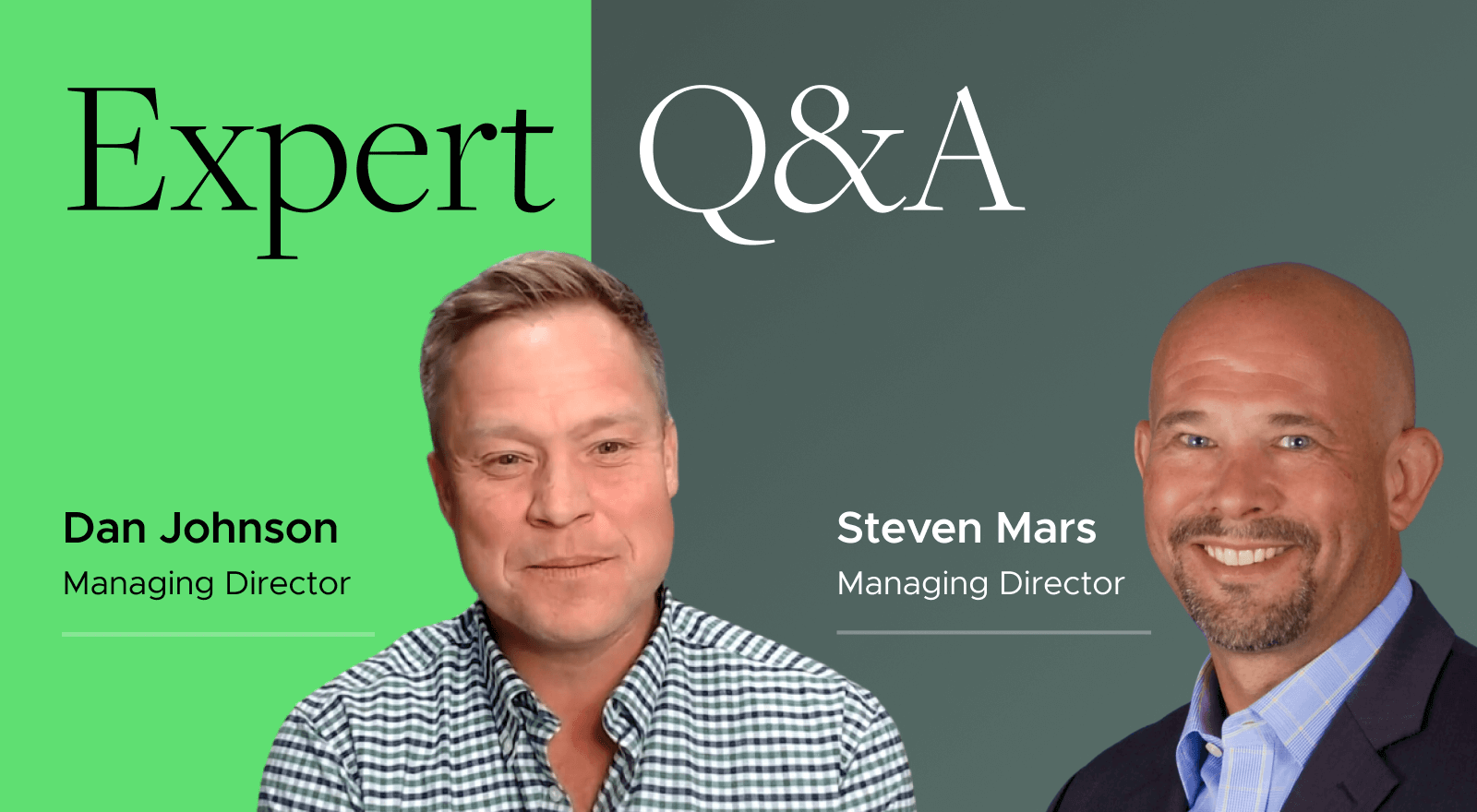
Wealth management firms are using AI to streamline business operations, reduce errors, and free up time for building strong client relationships. In fact, according to our new research report on AI in Wealth Management, 74% of firms are using AI up from 51% in 2023. And while many advisors quickly think about note taking tools and document scanners, AI can help lift your marketing effort as well.
How AI Supports Human Creativity
I believe it’s imperative that we don’t allow AI to speak for us, but rather, enhance our voice. AI shouldn’t replace your creative process or your human team, but it can give them more options to expand their creativity. Tools exist that can offer design options in seconds that match your brand style guide. Similarly, beyond allowing ChatGPT to write for you, you can use AI to save time on research or analyze data, customize, and improve email campaigns and further segment your client communications - deepening connection and trust. All of this can and should enhance – not replace – your answer engine optimization (AEO) search, reporting capabilities, client experience, custom content, and collateral creation.
Real World Use Cases of AI in Wealth Management Marketing
AI capabilities can help wealth firms and advisors do even more with their marketing. I receive a lot of questions about how AI can support a firm’s marketing efforts, so I’ve summarized a few of the common ones I see to help with your thinking within your firm.
Client Segmentation and Personalization
- Use Case: AI can analyze your clients’ behaviors, portfolio data, and demographics to further segment audiences more effectively.
- Benefit: AI can enable hyper-personalized communications that build more engagement and trust.
- Example: Your team can create custom newsletters that are tailored to specific client personas and demographics.
Content Creation and Automation
- Use Case: Gen AI tools can create compliant blog posts and intelligent social content to support advisors in their content strategy.
- Benefit: This can save the advisor time while scaling the firm’s thought leadership and AEO.
- Example: Advisors can create weekly market commentaries scheduled to go out via email and post on social channels.
Email Campaign Optimization
- Use Case: AI can test subject lines, send times, and content themes to improve open and conversion rates with your audience.
- Benefit: Increase ROI of marketing efforts through ongoing monitoring and improvement.
- Example: An advisor’s drip email campaign can be automatically and continuously optimized based on their readers’ behaviors.
Client Retention
- Use Case: There are AI tools that can identify patterns of client dissatisfaction and alert the advisor when there are potential red flags.
- Benefit: Allow the advisor to reach out proactively before attrition occurs.
- Example: AI can alert an advisor when a client stops opening emails or logging into their client portal.
SEO and Website Optimization
- Use Case: AI can recommend content updates and UX improvements to your website based on current trends and engagement metrics.
- Benefit: Increase your brand’s visibility to potential clients searching for your services.
- Example: AI can recommend blog topics with high-volume searches for your firm’s targeted demographic.
Compliance Monitoring
- Use Case: Review marketing materials and flag potential compliance risk issues while performing regulatory archiving.
- Benefit: Reduce risk, accelerate approvals, and ensure FINRA/SEC compliance at scale.
- Example: AI can automatically flag an advisor’s social post that makes a claim without proper disclosures before publishing
While the options I list above are exciting to think about and explore as you scale your business, it is imperative that each use case is considered within the full context of your firm’s overall goals, existing technology ecosystem, and implementation roadmap. This will help fight the urge to jump at every new tool that hits the market and ensure AI continues to enhance – not detract – from your firm’s longer term business strategy.
Getting Started with AI
If you think all this is great, but feel overwhelmed at the possibilities, try these approaches to test the waters and explore AI efforts within your own business:
Internal Assessment and Strategy Alignment. Many vendors now weave AI functionality into their solutions, so review your current tech stack and begin to align business goals associated with AI to your current tools. Your AI tools should support your marketing – ultimately overall business – strategy. To do this successfully, it is important to:
- Identify pain points and opportunities in your marketing strategy
- Define clear objectives for using AI
- Evaluate current infrastructure and data
- Weave your AI strategy into your firm’s existing technology ecosystem
- Avoid adding a bunch of standalone solutions
Turn to The Experts. You already have a day job; learning AI doesn’t have to be a second one. Here are a few ways you can tap into external knowledge:
- Outsource this work to skilled consultants who focus on keeping up with AI trends every day and understand your firm’s existing technology ecosystem. They can help you select and implement the tools that make sense for your firm, existing business strategy, and roadmap.
- Partner with vendors offering AI-powered platforms and tools designed for the financial services industry (e.g., CRM systems with AI capabilities, robo-advisors, marketing and risk management platforms).
- Tune into podcasts to stay at the cutting edge of where marketing meets tech meets wealth management. A few of my favorites: The AI in Business Podcast, Me Myself & AI, AI & the Future of Work, The AI Daily Brief, The Gradient Podcast, Practical AI
Invest in Security and Training. Develop or invest in training for advisors and employees on how best to safely leverage AI within your firm and protect your proprietary information.
- Security. With access to AI tools at our fingertips, it is important to build employee protocols and safeguards for the usage of AI within your firm.
- Training. There are various programs out there that are available focusing on marketing, operations, and client engagement. These options range from structured courses to interactive tools and vendor-led sessions.
More on AI
Curious to know more about AI in marketing? I’ll be speaking on this and more at Snappy Kraken’s JOLT! Conference June 9-11th to explain how their firms are using AI to overcome common obstacles. If you’re there too, I’d love to connect and engage in a more thorough discussion about AI and hear about ways you think it could help your firm.
See how F2 Strategy can support all your digital marketing efforts.


.png)


